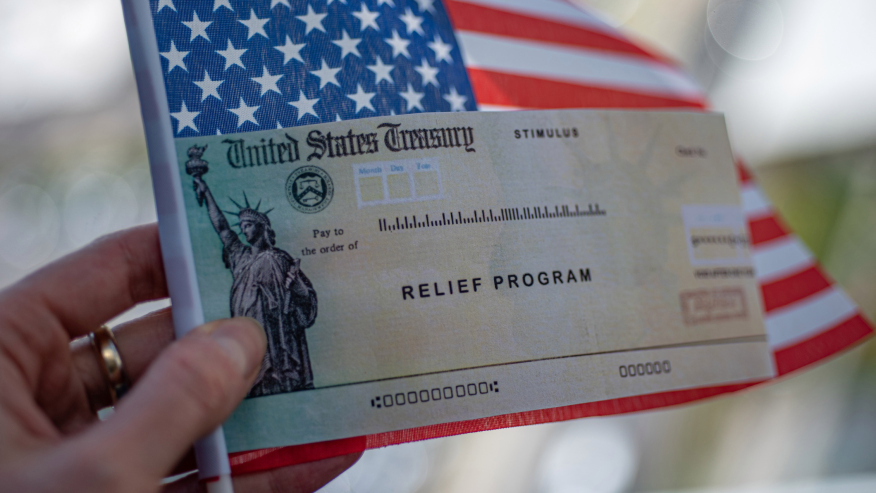COVID-19 Relief Payments and Benefits
Navigating tax season this year is a little more complex because of the economic relief stimulus payments and unemployment benefits that millions of Americans received in 2020.
There’s a lot of uncertainty about how the tax implications those payments are going to have (if any) on Americans getting ready to send their information to the IRS.
Thankfully though, the overwhelming majority of Americans receiving stimulus checks or unemployment benefits will not be on the hook for paying extra taxes because of that relief.
Those payments (at the federal level and in most states, anyway) are 100% tax-free.
With the third stimulus check rolling out right now, though, it’s important to understand the value of timing your 2020 tax filing perfectly. Submitting this information early (or closer to the deadline) can impact the size of the stimulus check you receive from the Biden Administration.
We cover all of that in depth below.
Let’s jump right in!
Will I Be Taxed on My Stimulus Checks
Three stimulus checks were issued by the government over the last 12 months (two from the Trump Administration and another from the Biden Administration), helping Americans in a dire time of need.
At the same time, millions of Americans are wondering if they have to pay taxes on that money – or any future stimulus money that may be coming from the government later on, too.
We are happy to tell you that you won’t have to worry at all about paying taxes on money you received through the stimulus!
Regardless of whether or not you were eligible to receive the full amount ($3200 across all three checks) or slightly less, every penny of that money is considered an “economic impact payment” and is free completely from taxation.
The only thing you’ll may have to worry about when it comes to your stimulus payment and filing your taxes occurs if you haven’t yet received your stimulus. This may mean you’re eligible for a Recovery Rebate Credit when filing for your 2020 tax return.
When filing your taxes for 2020, input the amount of money you were legally entitled to but didn’t receive from the two stimulus checks in 2020 (the $1200 and $600 checks) on your tax return. Or better yet, have your tax advisor handle this for you.
You’ll find a line specifically for this information on Page 2, Line 30 of the 2020 version of Form 1040 from the IRS.
If you are due a tax rebate from the IRS, the Recovery Rebate Credit you are eligible for will be added on top of the rebate you were going to receive. This means you’ll get up to an extra $1800 plus your standard rebate.
If you owed taxes to the IRS, this Recovery Rebate Credit (up to $1800) can be applied correctly to your outstanding balance and used to pay down your tax burden.
Unemployment Benefits are (Mostly) Tax Free This Year, Too
Although unemployment benefits are traditionally counted as income when tax time rolls around, that’s not the case when filing your 2020 taxes – at least when you are filing your federal taxes, anyway.
Thanks to language added to the economic relief payments legislation as part of the American Rescue Plan, there are protections for up to $10,200 in unemployment benefits from federal taxation (per individual).
Married couples are able to enjoy $20,400 in unemployment benefits protected from federal taxation if they are filing jointly, too.
This doesn’t necessarily mean that the state isn’t going to want to tax that money (many of them do). But it does mean that IRS and the US government is providing a bit of extra relief while recognizing just how challenging 2020 was for millions of Americans.
Timing Your Tax Filings Could Be Critical This Year
While hundreds of millions of $1400 stimulus payments rolled out under the Biden Administration have already been cashed or deposited by Americans, there are still hundreds of millions more waiting to be sent out.
This is why it’s so important to time filing your taxes correctly.
You see, your most recent tax return (either 2019 or 2020) is going to be used to determine just how much of a stimulus you receive.
If you made more money in 2020 than you did in 2019, be sure to speak to your tax advisor first before your file, in case they recommend holding off (until that stimulus check update says it’s on its way).
If you made less money in 2020 than you did in 2019, though, you might want to hurry up and file those taxes.
Getting new financial information in before the IRS uses your 2019 info can guarantee as large a stimulus as possible.
The Treasury Department and the IRS have both agreed to extend the federal income tax filing date for 2020 back from April 15, 2021 to May 17, 2021. That’ll give an extra month worth of “buffer zone” to those that want to be sure their 2019 filing is used for their stimulus payment.
We’d love to sit down and talk about your tax situation and how you can protect as much of your income as possible – legally, ethically, and responsibly.
If you’d like personalized help for navigating the often confusing tax situation post-coronavirus, please don’t hesitate Robert Hall & Associates at your earliest convenience via the webform here, by phone at 818-242-4888 or reach me directly via email at [email protected].

